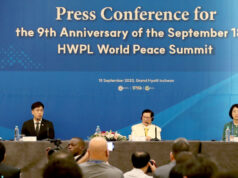Adnan Aamir
Islamabad: Despite a decade of bad governance, Pakistan’s vast bureaucracy is chronically understaffed which is partially contributing to preventing governance from significantly improving.
Analysis of the data provided in Annual statistical bulletin of Establishment Division shows that out of the total sanctioned positions of 444,173, only 380,152 positions have been filled, which is 85.6 percent of the total available positions. This means that in federal bodies of Pakistan one out of seven available positions is vacant.
[infogram id=”39882982-15f7-476f-b239-6c4be9042a7b” prefix=”4MN”]
Worldwide Governance Indicators released by World Bank for Pakistan indicate that there was an average improvement of just 1.41 percent in the governance indicators of Pakistan over the period of last 10 years. Whereas the same indicator improved by 11.03% in Bangladesh, 5.71% in India and 2.45% in Sri Lanka.
[infogram id=”d33f05a6-db0d-4fab-8adc-7ebf9278d9d6″ prefix=”v1X”]
This can be linked to a shortage of employees of federal government of Pakistan as stated in Sanctioned and actual strength of employees of autonomous and semi-autonomous bodies and corporations report. Among the divisions, Foreign Affairs division has the lowest percentage of employees where every 2 out of 5 positions are lying vacant.
Establishment division, which deals with the federal bureaucracy and has also published the annual statistical bulletin, also has one out of every three positions vacant. This means essential jobs like processing of new hires and distributing benefits may be delayed or are not being done at all.
[infogram id=”88f038c6-412d-4102-8ab0-e47d6f168c23″ prefix=”v1t” format=”interactive” title=”Divisions”]
Analysis further revealed that almost 2 out of every 3 federal bodies of Pakistan have fewer employees than what they are supposed to have.
It was also revealed in the data analysis that government bodies related to economics and academics has had significant number of vacant positions. Strategic Export Control Unit, Financial Monitoring Unit and National Centre of Excellence in Geology are found to be three government bodies with highest number of vacancies. This shows that jobs related to trade and financial monitoring could not be performed properly by government.
[infogram id=”064b4fb6-a14d-4506-ba72-5fd7d3ad0ac9″ prefix=”ZNN” format=”interactive” title=”Lowest Staffed Bodies”]
Tasneem Noorani, former Federal Secretary, believes that Pakistan is suffering from a worse bad governance crisis and flawed decision making on political grounds. He argues that a major reason for overstaffing in certain government organizations is due to political appointments.
This is supported by the analysis which shows that different bodies, which are famous for political appointments, have more recruitments then their sanctioned strength. These bodies include Pakistan Steel Mills, PASSCO, and APP.
[infogram id=”3cfd9125-7d43-4650-bb11-016d2f2deba4″ prefix=”oMq” format=”interactive” title=”Highest Staff Bodies”]
According to World Bank Databank, Rule of Law and Accountability Indicators of Pakistan are facing a negative for last ten years and vacancies in key government organizations can be related to this trend.
Note: If you have found an error in this article or a factual inaccuracy or just want to give general feedback then feel free to contact us at [email protected]
Share your comments!








